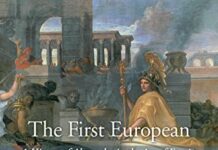
Ebook Info
- Published: 2002
- Number of pages: 1216 pages
- Format: PDF
- File Size: 55.35 MB
- Authors: Pierre Briant
Description
Around 550 B.C.E. the Persian people―who were previously practically unknown in the annals of history―emerged from their base in southern Iran (Fars) and engaged in a monumental adventure that, under the leadership of Cyrus the Great and his successors, culminated in the creation of an immense Empire that stretched from central Asia to Upper Egypt, from the Indus to the Danube. The Persian (or Achaemenid, named for its reigning dynasty) Empire assimilated an astonishing diversity of lands, peoples, languages, and cultures. This conquest of Near Eastern lands completely altered the history of the world: for the first time, a monolithic State as vast as the future Roman Empire arose, expanded, and matured in the course of more than two centuries (530–330) and endured until the death of Alexander the Great (323), who from a geopolitical perspective was “the last of the Achaemenids.” Even today, the remains of the Empire-the terraces, palaces, reliefs, paintings, and enameled bricks of Pasargadae, Persepolis, and Susa; the impressive royal tombs of Naqsh-i Rustam; the monumental statue of Darius the Great-serve to remind visitors of the power and unprecedented luxury of the Great Kings and their loyal courtiers (the “Faithful Ones”).Though long eclipsed and overshadowed by the towering prestige of the “ancient Orient” and “eternal Greece,” Achaemenid history has emerged into fresh light during the last two decades. Freed from the tattered rags of “Oriental decadence” and “Asiatic stagnation,” research has also benefited from a continually growing number of discoveries that have provided important new evidence-including texts, as well as archaeological, numismatic, and iconographic artifacts.The evidence that this book assembles is voluminous and diverse: the citations of ancient documents and of the archaeological evidence permit the reader to follow the author in his role as a historian who, across space and time, attempts to understand how such an Empire emerged, developed, and faded. Though firmly grounded in the evidence, the author’s discussions do not avoid persistent questions and regularly engages divergent interpretations and alternative hypotheses. This book is without precedent or equivalent, and also offers an exhaustive bibliography and thorough indexes.The French publication of this magisterial work in 1996 was acclaimed in newspapers and literary journals. Now Histoire de l’Empire Perse: De Cyrus a Alexandre is translated in its entirety in a revised edition, with the author himself reviewing the translation, correcting the original edition, and adding new documentation.Pierre Briant, Chaire Histoire et civilisation du monde achémenide et de l’empire d’Alexandre, Collège de France, is a specialist in the history of the Near East during the era of the Persian Empire and the conquests of Alexander. He is the author of numerous books.Peter T. Daniels, the translator, is an independent scholar, editor, and translator who studied at Cornell University and the University of Chicago. He lives and works in New York City.
User’s Reviews
Reviews from Amazon users which were colected at the time this book was published on the website:
⭐Arguably, western historical tradition started with Herodotus trying to tell the story of the vast Persian Empire to the East of the Greek city states. Since then, western history of Persia has always been written from a Greek perspective, which was biased with a strong propagandist agenda.Pierre Briant has sought to overcome this long-ingrained Greco-centric view of the Persian empire through a very detailed & deeply analytical history which integrates all existing knowledge on the first full-scale Empire in Southwest Asia. Writing originally in French in mid-90s, Briant approaches this history with 1) an analytical approach to the political narrative which seeks to lay bare the ideological elements ingrained in the Greek texts and 2) a sweeping overview of the politico-socio-economical organization of the vast Empire built on evidence verified on local levels. What emerges clearly was the Persian Empire as a viable politico-economical super-structure that layered on top of deep-rooted local traditions. The Empire infrastructure sustained for the 200 years that the classical Greek culture flourished, and that this infrastructure was inherited– though not sustained– by Alexander and his companions through conquest.This is a heavy tome as Briant tried to overcome a very deep-rooted academic historiographical tradition, so at times the writing can be tedious. Also, this book does not seek to cover Zoroastrianism at all (beyond describing the royal Achaemenid ideology which the author neither identifies nor disscoiates with Zoroastrianmism). However, the freshness in perspectives, plus the very well-rendered, top quality translation, makes the book a truly ‘value-for-money’ purchase in my view.
⭐The book I received has been used and abused quite obviously from opening the box.Stains alone the pages and worn cover from being left in the sun I assume.I also assume this must be a mistake.
⭐What would have happened,if we did not know much about The Roman Empire ?That is unfortunatly what Greek culture has prevented the world ,to know about the persian Empire !While, The cultural contribution The Greeks have offered the world, is undeniable….yet, 2500 years ago, they were just small city states,who as far as global imporatnce, were too small and insignificant……..yet, thier advantage in recording history has influenced the currant intelectual circles,far more than thier true comparetive historical value …..Persian History , has been consistantly marginalized by the western historians….perhaps with a little mixture of twenteith century racism.The issue is not that ” The Winners of wars ” will get to write histroy…..The real issue is that ” woners of means of documetation ,and writing ” ,” will get to change history “.This Book, is just a start to balance the western vision of History……..
⭐Good reference work
⭐This is probably the most thorough treatment of Achaemenid Persia to date. It is excellent and also includes the very best single bibliography on the subject.I recommend this to any student of ancient history. For the price it is a steal, a work of this size from one of the major academic presses would easily be 5 times as much.Written by one of the leading scholars, arguable THE leading scholar on Persia, it is well written, well planned and the information is carefully presented.
⭐Brand new book! Still wrapped in plastic!
⭐You will find no better book on Achaemenid Persia than Briant’s.
⭐This book is discussing pre-Islamic era of Iran. This book is discussing founder of Iran Zamin Cyrus the Great who found daynasty of Hakhamanishian. This dynasty came to an end by invasion of Alexandra.
⭐This book exceeded my – high – expectations. I thought that Amélie Kuhrt’s “The Persian Empire” would say it all, but this incredible and hugely voluminous study is an absolute must for every lover of ancient Persian history and enthusiast of the Achaemenid period – even if Kuhrt’s book already bends your bookshelf. From Cyrus to Alexander is a beacon for anyone wanting to sharpen their pencil in studying and reporting history.
Keywords
Free Download From Cyrus to Alexander: A History of the Persian Empire in PDF format
From Cyrus to Alexander: A History of the Persian Empire PDF Free Download
Download From Cyrus to Alexander: A History of the Persian Empire 2002 PDF Free
From Cyrus to Alexander: A History of the Persian Empire 2002 PDF Free Download
Download From Cyrus to Alexander: A History of the Persian Empire PDF
Free Download Ebook From Cyrus to Alexander: A History of the Persian Empire


